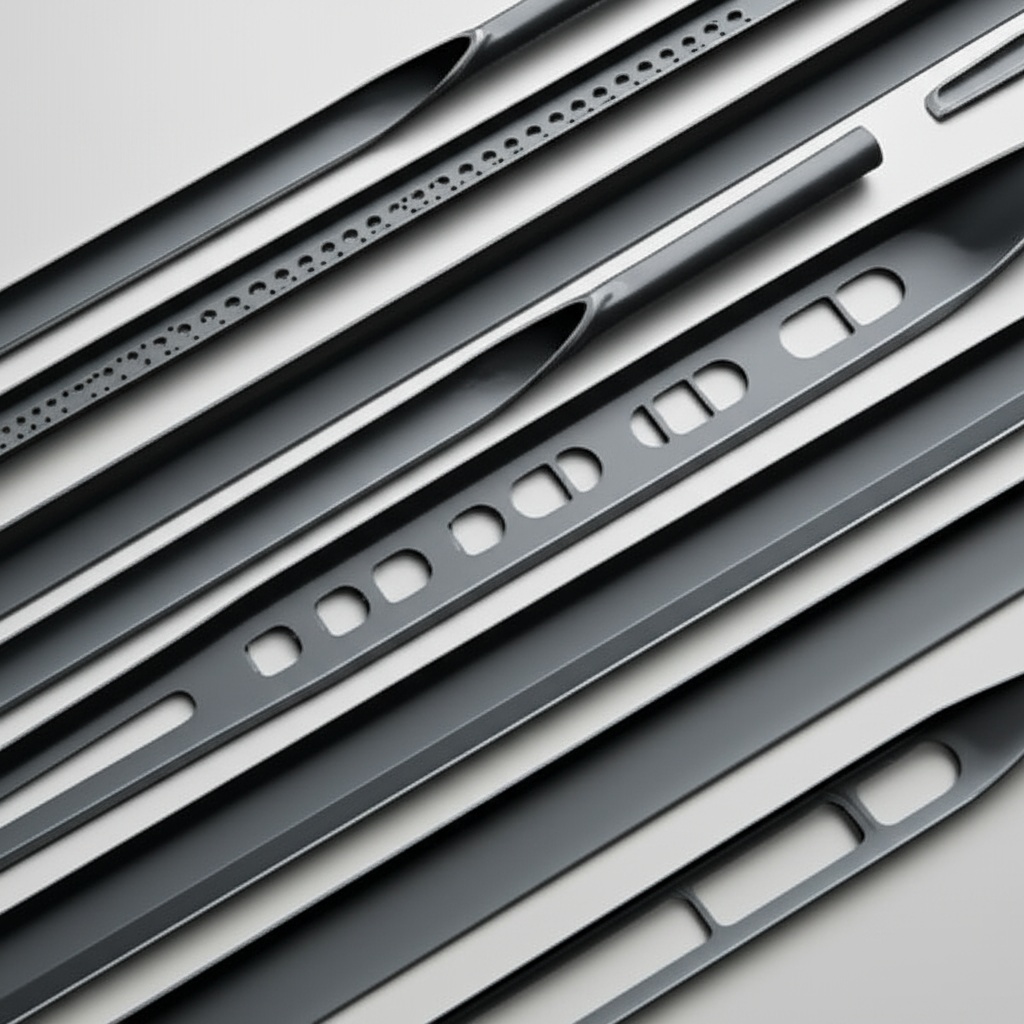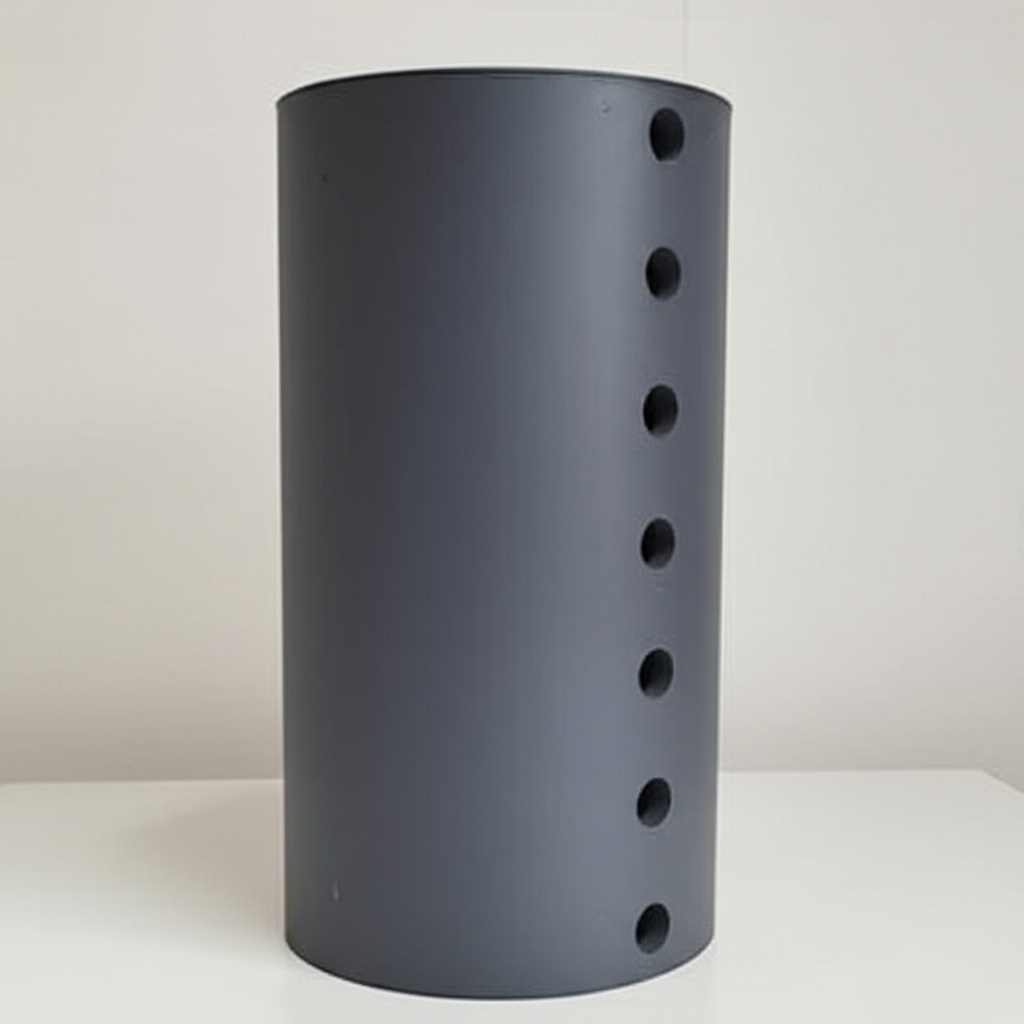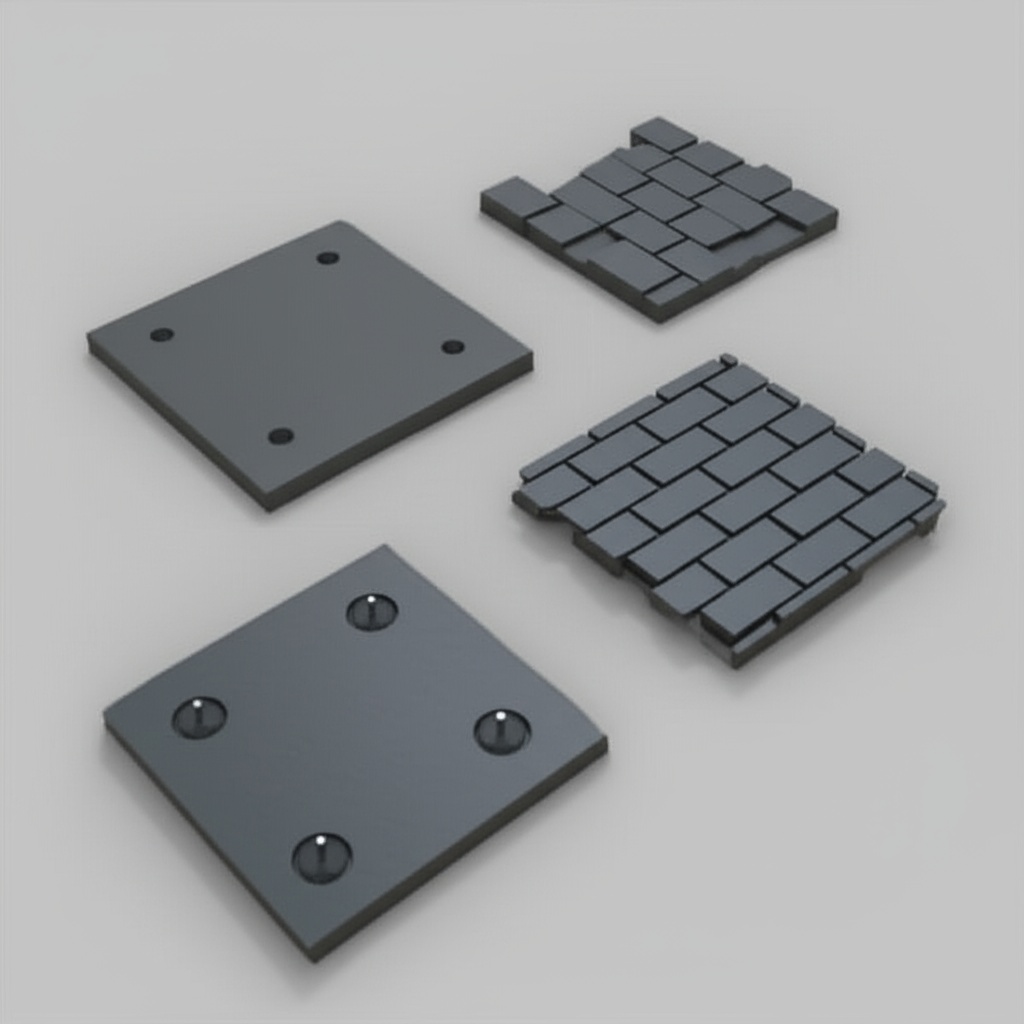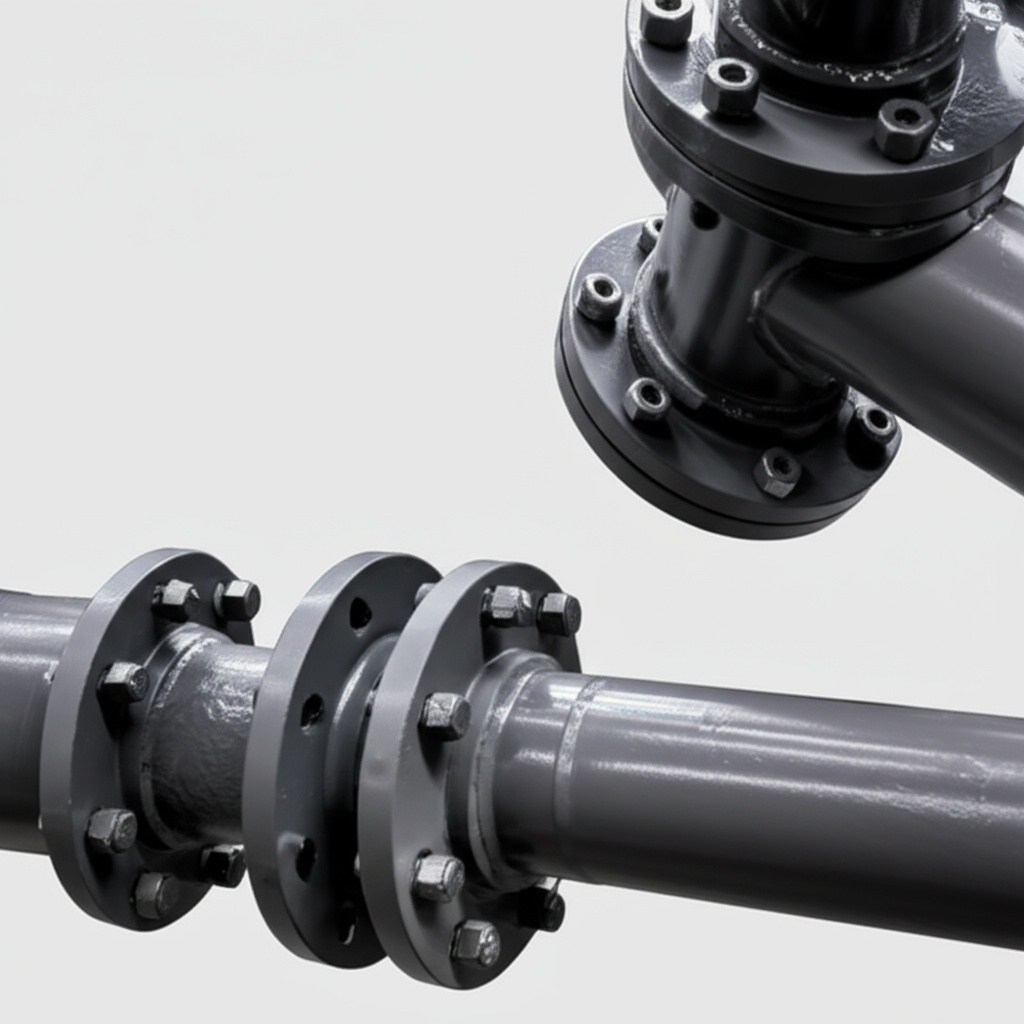Custom SiC Solutions from Russian Manufacturers

Share
Custom SiC Solutions from Russian Manufacturers
In the demanding world of advanced engineering, the search for materials that can withstand extreme conditions while offering superior performance is never-ending. Custom silicon carbide (SiC) products stand at the forefront of this innovation. Renowned for their exceptional properties, these technical ceramics are becoming indispensable across a multitude of high-performance industrial applications. This blog post will delve into the critical role of custom SiC components, exploring their benefits, applications, design considerations, and why partnering with the right manufacturer is paramount for success in an increasingly competitive global market.
What are Custom Silicon Carbide Products?
Custom silicon carbide products are specialized ceramic components precisely engineered to meet the unique specifications and performance requirements of specific industrial applications. Unlike off-the-shelf solutions, custom SiC parts are tailored in terms of geometry, material composition, and surface finish to optimize performance in extreme environments. SiC, a compound of silicon and carbon, boasts a unique combination of properties, including:
- Exceptional Hardness and Wear Resistance: Surpassing most engineering materials.
- High Thermal Conductivity: Efficiently dissipating heat, crucial for high-power devices.
- Excellent Chemical Inertness: Resistant to aggressive chemicals and oxidation.
- High Temperature Stability: Maintaining mechanical strength at elevated temperatures where metals fail.
- Low Thermal Expansion: Minimizing thermal shock and maintaining dimensional stability.
These attributes make custom silicon carbide components essential for industries pushing the boundaries of technology and performance.
Main Applications of SiC
The versatility of custom SiC solutions makes them ideal for a broad spectrum of industries, driving innovation and improving system reliability:
- Semiconductor Manufacturing: For SiC wafer processing equipment, susceptors, and plasma etching components, where purity and temperature stability are critical.
- Automotive Companies: In electric vehicle (EV) power electronics, inverters, and onboard chargers for enhanced efficiency and thermal management.
- Aerospace Companies: For lightweight, high-strength aerospace components, thermal protection systems, and engine parts subjected to extreme temperatures.
- Power Electronics Manufacturers: For SiC power modules, diodes, and transistors, enabling higher power density and reduced energy loss.
- Renewable Energy Companies: Inverters for solar and wind energy systems, where efficiency and durability are paramount.
- Metallurgical Companies: For high-temperature furnace components, crucibles, and abrasion-resistant parts in metal processing.
- Defense Contractors: For lightweight armor, thermal management in electronic systems, and high-performance structural components.
- Chemical Processing Companies: For corrosion-resistant pump seals, valves, and heat exchangers in aggressive chemical environments.
- LED Manufacturers: For heat sinks and substrates, managing the thermal output of high-power LEDs.
- Industrial Equipment Manufacturers: For wear parts in pumps, seals, bearings, and nozzles operating in harsh conditions.
- Telecommunications Companies: For RF power amplifiers and base station components requiring efficient thermal management.
- Oil and Gas Companies: For drilling tools, seals, and downhole components requiring extreme wear and corrosion resistance.
- Medical Device Manufacturers: For precision surgical instruments and components requiring biocompatibility and sterilization resistance.
- Rail Transportation Companies: For braking systems and power conversion units in high-speed rail.
- Nuclear Energy Companies: For components within reactor systems requiring neutron transparency and radiation resistance.
Why Choose Custom Silicon Carbide?
Opting for custom silicon carbide manufacturing offers distinct advantages over standard materials or off-the-shelf solutions:
- Optimized Performance: Tailored designs ensure maximum efficiency and longevity for specific operational conditions.
- Enhanced Durability: Leveraging SiC’s inherent wear resistance, thermal resistance, and chemical inertness to extend component lifespan.
- Problem Solving: Custom solutions can address unique engineering challenges where standard materials fail.
- Cost-Effectiveness in the Long Run: While initial investment may be higher, the extended lifespan and reduced downtime lead to significant long-term savings.
- Competitive Advantage: Utilizing cutting-edge materials and designs can differentiate products and improve market position.
When considering custom silicon carbide solutions, it’s crucial to partner with manufacturers who possess deep expertise and a proven track record. Here is the hub of China’s silicon carbide customizable parts factories. As you are aware, the hub of China’s silicon carbide customizable parts manufacturing is situated in Weifang City of China. Now the region has been home to over 40 silicon carbide production enterprises of various sizes, collectively accounting for more than 80% of the nation’s total silicon carbide output.
We, Sicarb Tech, have been introducing and implementing silicon carbide production technology since 2015, assisting the local enterprises in achieving large-scale production and technological advancements in product processes. We have been a witness to the emergence and ongoing development of the local silicon carbide industry.
Based on the platform of the National Technology Transfer Center of the Chinese Academy of Sciences, Sicarb Tech belongs to Chinese Academy of Sciences (Weifang) Innovation Park, an entrepreneurial park that collaborates closely with the National Technology Transfer Center of the Chinese Academy of Sciences. It serves as a national-level innovation and entrepreneurship service platform, integrating innovation, entrepreneurship, technology transfer, venture capital, incubation, acceleration, and scientific and technological services. Learn more about our company here.
Sicarb Tech capitalizes on the robust scientific, technological capabilities and talent pool of the Chinese Academy of Sciences . Backed by the Chinese Academy of Sciences National Technology Transfer Center, it serves as a bridge, facilitating the integration and collaboration of crucial elements in the transfer and commercialization of scientific and technological achievements. Moreover, it has established a comprehensive service ecosystem that spans the entire spectrum of the technology transfer and transformation process. More reliable quality and supply assurance within China Sicarb Tech possess a domestic top-tier professional team specializing in customized production of silicon carbide products. Under our support, 498+ local enterprises have benefited from our technologies. We possess a wide array of technologies, such as material, process, design, measurement & evaluation technologies, along with the integrated process from materials to products. This enables us to meet diverse customization needs. We can offer you higher-quality, cost-competitive customized silicon carbide components in China. You can explore our successful cases and applications.
We are also committed to assisting you in establishing a specialized factory. If you need to build a professional silicon carbide products manufacturing plant in your country, Sicarb Tech can provide you with the technology transfer for professional silicon carbide production, along with a full range of services (turnkey project) including factory design, procurement of specialized equipment, installation and commissioning, and trial production. This enables you to own a professional silicon carbide products manufacturing plant while ensuring a more effective investment, reliable technology transformation, and guaranteed input-output ratio. For customization support, feel free to reach out to us.
Recommended SiC Grades and Compositions
Different SiC grades are optimized for specific applications based on their unique properties:
| SiC Type | Description | Key Properties | Typical Applications |
|---|---|---|---|
| Reaction-Bonded SiC (RBSC) | Porous SiC infiltrated with molten silicon. | High strength, excellent thermal shock resistance, good thermal conductivity. | Kiln furniture, pump seals, mechanical seals, aerospace components. |
| Sintered SiC (SSiC) | Pure SiC sintered at high temperatures without free silicon. | Extremely hard, high strength, excellent corrosion and wear resistance, low porosity. | Mechanical seals, bearings, nozzles, semiconductor equipment, ballistic armor. |
| Nitride-Bonded SiC (NBSC) | SiC grains bonded with silicon nitride. | Good thermal shock resistance, moderate strength, good oxidation resistance. | Kiln furniture, burners, structural components in high-temperature furnaces. |
| Chemical Vapor Deposition (CVD) SiC | High-purity SiC formed by chemical vapor deposition. | Extremely high purity, near-theoretical density, isotropic properties. | Semiconductor susceptors, optical components, mirror substrates. |
Design Considerations for SiC Products
Designing custom silicon carbide components requires a deep understanding of the material’s properties to ensure manufacturability and optimal performance. Key considerations include:
- Geometry Limits: SiC is hard and brittle, making complex geometries challenging. Designers must balance performance needs with manufacturing feasibility. Avoid sharp corners and abrupt changes in cross-section to minimize stress concentrations.
- Wall Thickness: Uniform wall thickness is preferred to ensure consistent material density and minimize warpage during processing.
- Stress Points: Identify potential stress concentration areas and incorporate generous radii to reduce the risk of fracture. Finite Element Analysis (FEA) is often used for optimizing designs.
- Tolerances: While SiC can achieve high precision, specifying excessively tight tolerances can significantly increase manufacturing costs and lead times.
- Material Selection: Choose the appropriate SiC grade based on the operating temperature, chemical environment, mechanical loads, and required thermal properties.
Tolerance, Surface Finish & Dimensional Accuracy
Achieving precise tolerances and surface finishes is crucial for the functionality of custom SiC components, especially in applications requiring sealing, precise motion, or smooth flow.
- Achievable Tolerances: Precision grinding and lapping techniques can achieve tight tolerances, often in the range of microns. However, the achievable tolerance depends on the part’s size, geometry, and the SiC grade.
- Surface Finish Options: From as-fired surfaces (rougher) to highly polished surfaces (mirror-like), the surface finish significantly impacts wear, friction, and sealing performance. Lapping and polishing are common post-processing steps.
- Dimensional Accuracy: Silicon carbide exhibits excellent dimensional stability due to its low thermal expansion coefficient, making it ideal for applications requiring high precision over varying temperatures.
Post-Processing Needs
After initial manufacturing, custom SiC parts often require additional post-processing steps to enhance their performance and durability:
- Grinding: Precision grinding is essential for achieving tight tolerances and specific geometries. Diamond grinding wheels are typically used due to SiC’s extreme hardness.
- Lapping and Polishing: For critical surfaces requiring exceptional flatness, smoothness, and sealing capabilities, lapping and polishing are employed.
- Sealing: In some applications, especially those involving porous SiC grades like RBSC, impregnation or coating might be used to enhance impermeability.
- Coating: Specialized coatings can be applied to further enhance properties like corrosion resistance, wear resistance, or alter surface energy for specific applications.
Common Challenges and How to Overcome Them
While SiC offers unparalleled advantages, working with it presents certain challenges:
- Brittleness: SiC is inherently brittle, making it susceptible to fracture under sudden impact or tensile stress.
- Overcoming: Design for compressive loads, incorporate generous radii, and ensure proper handling and mounting during assembly.
- Machining Complexity: Its extreme hardness makes machining difficult and expensive, requiring specialized diamond tooling.
- Overcoming: Optimize designs for manufacturability, minimize complex features, and work with experienced SiC fabricators.
- Thermal Shock (though resistant, not immune): While SiC has excellent thermal shock resistance, extreme rapid temperature changes can still cause stress.
- Overcoming: Design for gradual temperature transitions or utilize grades with enhanced thermal shock resistance.
- Cost: The raw material and manufacturing processes for SiC can be more expensive than conventional materials.
- Overcoming: Focus on the total cost of ownership, considering the extended lifespan, reduced downtime, and enhanced performance that SiC provides.
How to Choose the Right SiC Supplier
Selecting a reliable custom SiC supplier is critical to the success of your project. Consider the following factors:
- Technical Capabilities: Does the supplier have expertise in various SiC grades, advanced machining techniques, and design optimization for ceramics?
- Material Options: Do they offer a wide range of SiC types (SSiC, RBSC, NBSC, CVD SiC) to suit your specific application?
- Quality Control and Certifications: Look for ISO certifications and robust quality management systems. Request material certifications and inspection reports.
- Experience and Track Record: Review their portfolio of past projects, especially in your industry. Review our case studies here.
- Engineering Support: A good supplier will offer design assistance, material selection guidance, and problem-solving expertise.
- Production Capacity and Lead Times: Ensure they can meet your volume requirements and project deadlines.
- Cost-Effectiveness: While not the sole factor, competitive pricing coupled with high quality is desirable.
Cost Drivers and Lead Time Considerations
The cost and lead time for custom silicon carbide components are influenced by several factors:
- Material Grade: Sintered SiC and CVD SiC are generally more expensive due to their higher purity and complex manufacturing processes.
- Part Complexity: Intricate geometries, tight tolerances, and fine surface finishes significantly increase machining time and cost.
- Part Size and Volume: Larger parts require more material and machining time. Higher volumes can sometimes lead to economies of scale.
- Post-Processing Requirements: Extensive grinding, lapping, polishing, or coating adds to the overall cost and lead time.
- Tooling Costs: For highly customized or complex parts, special tooling may be required, which can be a one-time upfront cost.
- Supplier’s Manufacturing Process: The efficiency and technology used by the manufacturer play a crucial role in overall cost and lead time.
Frequently Asked Questions (FAQ)
- Q1: What is the typical lifespan of a custom SiC component?
- A1: The lifespan varies greatly depending on the application, operating conditions (temperature, chemical exposure, abrasive media), and design. However, due to SiC’s superior properties, custom components often significantly outlast traditional materials, leading to reduced maintenance and replacement costs.
- Q2: Can custom SiC parts be repaired or refurbished?
- A2: Generally, it is challenging to repair SiC parts due to their hardness and brittle nature. Minor surface damage might be rectified through grinding and polishing, but significant damage typically necessitates replacement. This underscores the importance of proper design and material selection upfront.
- Q3: How do I get started with a custom SiC project?
- A3: Begin by clearly defining your application’s requirements, including operating conditions, mechanical loads, thermal demands, and desired lifespan. Then, engage with an experienced SiC manufacturer like Sicarb Tech. Provide them with detailed drawings, specifications, and performance expectations. They can assist with material selection, design optimization, and provide a quotation. Contact us today to discuss your project.
Conclusion
The role of custom silicon carbide products in modern industrial applications is undeniable. From revolutionizing semiconductor manufacturing to enhancing the efficiency of power electronics and ensuring the longevity of high-temperature processing equipment, SiC delivers unparalleled performance. By understanding the advantages of custom SiC solutions, embracing thoughtful design considerations, and partnering with experienced suppliers like Sicarb Tech in China, industries can unlock new levels of efficiency, reliability, and innovation. Investing in tailored SiC components is an investment in future-proof technology and sustained operational excellence in the most demanding environments.

About the Author: Sicarb Tech
We provide clear and reliable insights into silicon carbide materials, component manufacturing, application technologies, and global market trends. Our content reflects industry expertise, practical experience, and a commitment to helping readers understand the evolving SiC landscape.




